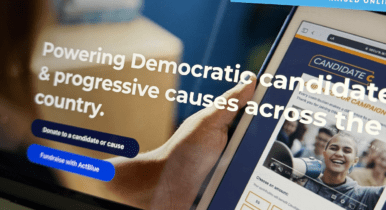What Apple’s New iOS Means for Digital Outreach
Apple is slated to roll out a suite of new features for iPhone users later this year that could mean big changes – and challenges – for political outreach.
The tech giant announced the coming release of iOS 26 earlier this month, introducing a slew of upgrades and changes to everything from the platform’s functionality to its basic design. A large swath of the new features are AI-focused, like live text and audio translations on its Messages and Facetime apps.
But the changes also threaten to upend the world of digital outreach. A new call screening feature will field phone calls from numbers not in a users’ contacts by collecting the caller’s name and the reason for the call. At that point, it’ll be up to the user to decide whether or not to take the call.
Meanwhile, text messages from numbers not in a users’ contacts will be filtered into a separate folder for unknown senders – similar to how email providers like Gmail sort different kinds of emails into separate tabs. iPhone users will then have the chance to mark the number as known, ask for more information or delete the message.
There are already apps on the market for call and text filtering, and Google Voice users have had call screening for years. But having that technology baked into iOS is a game changer for political outreach, one Republican digital fundraising practitioner said.
“It’s going to be a massive headache,” the fundraiser told C&E. “We’re putting everything in the hands of the iPhone and keeping our fingers crossed that we’ll actually be able to talk to a real person.”
Phone bankers, the fundraiser said, are going to have to get more creative in how they approach their calls: “It’s going to take some trial and error to figure out what works. What can you say to get someone to think, ‘hey, maybe this call is actually worth taking’?”
A New Hurdle for Texting
The new SMS-filtering feature poses a similar challenge. Messages sorted into the “unknown senders” folder won’t trigger a notification on the users’ iPhone, meaning that it’s up to the individual user to actively check that folder. That creates an extra hurdle for text outreach at a time when many practitioners are grappling with voter frustration over political texting.
To be sure, it’s still unclear which features will be turned on by default. And it’s certainly not the first time that digital outreach pros have had to adapt to new iOS features. After Apple unveiled new features last year that created AI-generated preview text for Messages and emails, some practitioners worried that their communications would be misinterpreted by the tech.
But practitioners are usually able to figure out a solution to such challenges, Mike Nellis, the founder of the Democratic firm Authentic, told C&E at the time.
“Apple and other groups are going to continue to make those changes, but it’s usually solvable,” Nellis said earlier this year.


